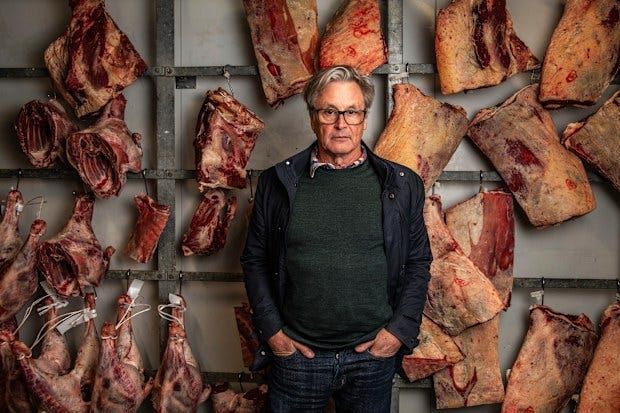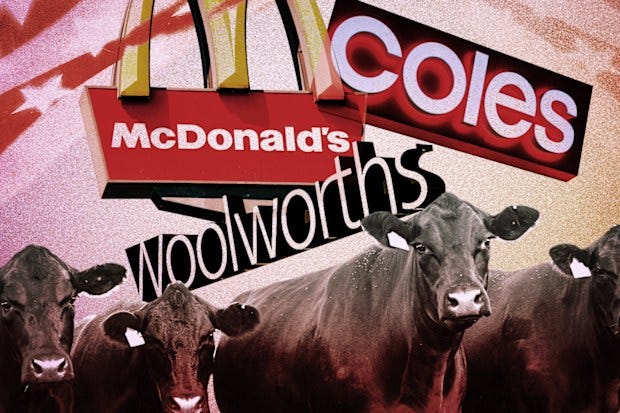Woolworths, Coles, Aldi and Macca’s to keep American beef off the menu
An effective boycott of US beef from the major chains means the vast majority of Australian consumption will stay local
By Campbell Kwan 1 August 2025 Australian Financial Review
The decision to stand with local producers closes the door on US beef for the vast majority of Australian consumers, who primarily purchase and consume meat from major outlets.
US beef has been effectively banned for more than 20 years from Australia until a government decision last week to lift biosecurity restrictions. While the ban was technically lifted in 2019, another biosecurity rule meant US beef imports remained limited.
Trump, who cited the beef import issue on “liberation day” when justifying his tariffs on Australian products, claimed credit for last week’s decision, but the government said it had nothing to do with the trade war and was based on the outcome of a 10-year departmental review.
A Woolworths spokesperson said it would not be changing its beef sourcing agreements, which are only with local producers. Woolworths buys and processes whole cattle for the beef that ends up on supermarket shelves.
“We apply an Australia-first approach, and 100 per cent of our fresh red meat is sourced directly from Australian farmers, with whom we have long-standing relationships,” a Woolworths spokesperson said.
“We have no plans to change that approach.”
Coles and Aldi released similar statements, with a Coles spokesperson confirming the company would continue to have only Australian-sourced beef on its shelves.
An Aldi spokesperson, said: “One hundred per cent of Aldi’s fresh meat comes from Australian farmers. Aldi has no plans to change this position.”
These three supermarket operators, along with independent grocery chain IGA, account for a combined 85 per cent of all beef sales to everyday shoppers, making their collective stance a significant barrier to US beef entering the Australian retail market, according to the Australian Meat Industry Council.
McDonald’s, meanwhile, sources around 80 million kilograms of Aussie beef for its burgers annually, and has no plans to change that. “We’ll continue to source 100 per cent Aussie beef for our menu and provide our customers with the great taste, quality and value they know and love,” a company spokesperson said.
Guzman Y Gomez founder and co-chief executive Steven Marks said his business’ sourcing decisions would not be influenced by Trump’s tariffs.

“Recent tariff decisions won’t impact where we source the high-quality ground beef and beef brisket that go into our signature burritos and bowls. At GYG, great taste starts with the best fresh ingredients, and Australian beef is here to stay,” Marks said.
The import ban, which was technically lifted in 2019 but remained in effect due to another biosecurity rule, was a point of contention with the Trump administration.
But the recent review – which found that cattle born and raised in Canada or Mexico, then legally imported and slaughtered in the US, met Australia’s safety standards for importation – has meant that Australia has dodged the “reciprocal” tariffs Trump announced for more than 40 other countries on “liberation day” in early April.
The US beef ban had been the key excuse given by the Trump administration for imposing steep tariffs on Australia.
Grant Hilliard, owner of prominent Sydney butcher Feather and Bone, said shoppers would be hard-pressed to find US beef in butcher cabinets or restaurant menus as well.
Hilliard – who supplies buffalo mozzarella to Neil Perry and beef to Merivale establishments such as Fred’s and Hotel Centennial – said he did not intend to introduce US beef into his stores in Waverley and Marrickville.
“We would never do import meat of any sort, especially if it’s lot-fed beef. In the US, about 95 per cent is lot-fed beef,” Hilliard told AFR Weekend.
“There might be people who want to use it on the lower end, but that’s irrelevant because of the way we do business.”
Original article here

